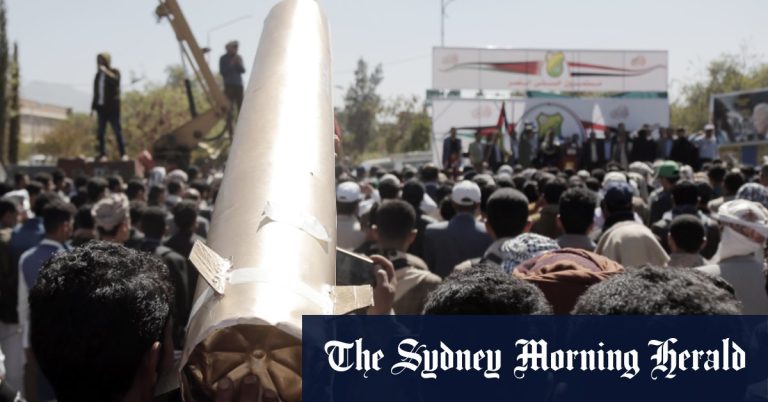The Houthis launch almost daily attacks with missiles or drones against commercial and military ships crossing the Red Sea and the Gulf of Aden.
Mohammed Al-Bukhaiti, a Houthi official, said, “Military operations against Israel will continue until the genocide crimes in Gaza are stopped and the siege imposed on its residents is lifted, no matter the sacrifices it costs us.” He wrote online, “The American-British aggression against Yemen will not go unanswered, and we will meet escalation with escalation.”
The Biden administration indicated that this may not be the last of its strikes. The United States blamed the Jordanian attack on the Islamic Resistance in Iraq, an alliance of Iranian-backed militias. Iran tried to distance itself from the drone strike, saying the militias were acting independently of its direction.
download
A video shared online by people in Sanaa included sounds of explosions and at least one explosion was seen lighting up the night sky. Residents described the explosions as occurring around buildings associated with the Yemeni presidential complex. The Yemeni News Agency (Saba), run by the Houthis, reported raids in the governorates of Al-Bayda, Dhamar, Hajjah, Al-Hudaydah, Taiz and Sanaa.
The Houthi attacks have prompted shipping companies to reroute their ships from the Red Sea, sending them around Africa via the Cape of Good Hope – a longer, more expensive and less efficient route. The threats also prompted the United States and its allies to establish a joint mission in which warships from participating countries provide a protective air defense umbrella for ships as they travel in the vital waterway that extends from the Suez Canal all the way to the Bab el-Mandeb Strait. .
During normal operations, approximately 400 commercial ships transit the southern Red Sea at any given time.
AP
Get a direct note from our foreign correspondents on what's making headlines around the world. Subscribe to the weekly What in the World newsletter here.


